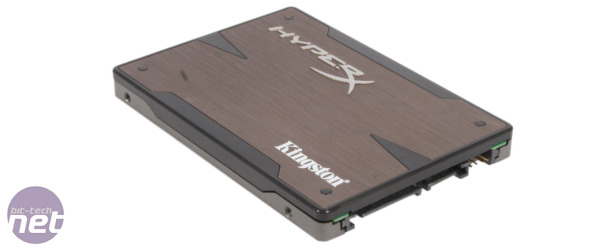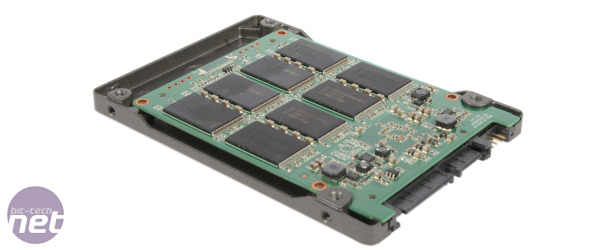Performance Analysis
Kingston might have brought its enthusiast-level branding into the mainstream with the HyperX 3K, but its latest drive isn’t able to offer the kind of pace demanded by top-level gamers and high-end users.In AS SSD’s sequential read benchmark the HyperX 3K scored 455MB/s: well below the peak speeds offered by the Vertex 4, SSD 830 or Crucial M4. Its 170MB/s speed in the sequential write benchmark sees it out=paced by all the competing 128GB drives too.
The HyperX 3K's result of 20MB/s in the 4K single queue-depth random read test is slower than the competition too, with the Crucial M4 128GB capable of speeds of 27.27MB/sec, a 30 per cent advantage. A 4K single queue-depth random write speed of 66MB/s is again sub-standard, as was the 4K 64 queue-depth random read speed of 112MB/sec. In short, it was an unimpressive showing.
Kingston’s latest followed much the same pattern in our CrystalDiskMark tests, with a string of disappointing results.Its 468MB/s result in the sequential read benchmark is again below what you can get elsewhere, with a sequential write speed of 180MB/sec only surpassing the speed of competing 64GB drives.
A 4K single queue-depth random read speed of 23MB/sec is again on the slow side, with 4K single queue-depth random write speed of 80MB/sec alos not troubling competing drives too much.
The HyperX 3K's one saving grace however was a strong showing the 4K 32 queue-depth random write test, where a result of 174MB/sec saw it surpass that of the Samsung SSD 830 family of drives and come close to the speed of the Crucial M4 128GB.
Adding to what is generally disappointing performance, we also found the HyperX 3K display the first-write performance degradation we've come to expect from SandForce drives, where performance drops a little after the drive's first fill. The Kingston followed the blueprint precisely, with its write benchmarks suffering the most: its AS SSD sequential write pace of 170MB/s dropped to 105MB/s, and its 4K 64 queue-depth random write result of 162MB/s dipped to 135MB/s, despite TRIM being enabled. Following these drops though, we found the drive's subsequent performance to be stable.

Click to enlarge - Price cuts from competing drives have made the HyperX 3K uncompetitive and comparatively poor value
Conclusion
The Kingston HyperX 3K 120GB didn’t impress when it came to our benchmarks then, returning well below-average results in most of our tests and being throughly out-performed by competing 128GB drives from Crucial and Samsung.It’s not a drive for speed, then, but the Kingston attempts to make up ground when it comes to value. However, the rapidly moving nature of the SSD market means that its £91 price tag and subsequent £0.81/GB isn't really anything special. The Samsung SSD 830 128GB can be had a for a ridiculously cheap £77.98 , the equivalent of just £0.66/GB, while a super-nippy OCZ Vertex 4 is yours for just £90. In comparison, the HyperX 3K is second best on both performance and value.
The HyperX 3K has arrived into a market that’s experiencing incredibly fluid pricing and a cut-throat level of competition from other manufactures who are willing to slash prices and margins to grab market share. In such a market, a drive that's targeted at the 'value' segment one day can find itself dearer than last weeks high-performance models, and that's exactly what's happened with the HyperX 3K. Slower and more expensive than the competition, there's little with which to recommend it.
-
Value18 / 35
-
Features11 / 15
-
Speed30 / 50


MSI MPG Velox 100R Chassis Review
October 14 2021 | 15:04










Want to comment? Please log in.